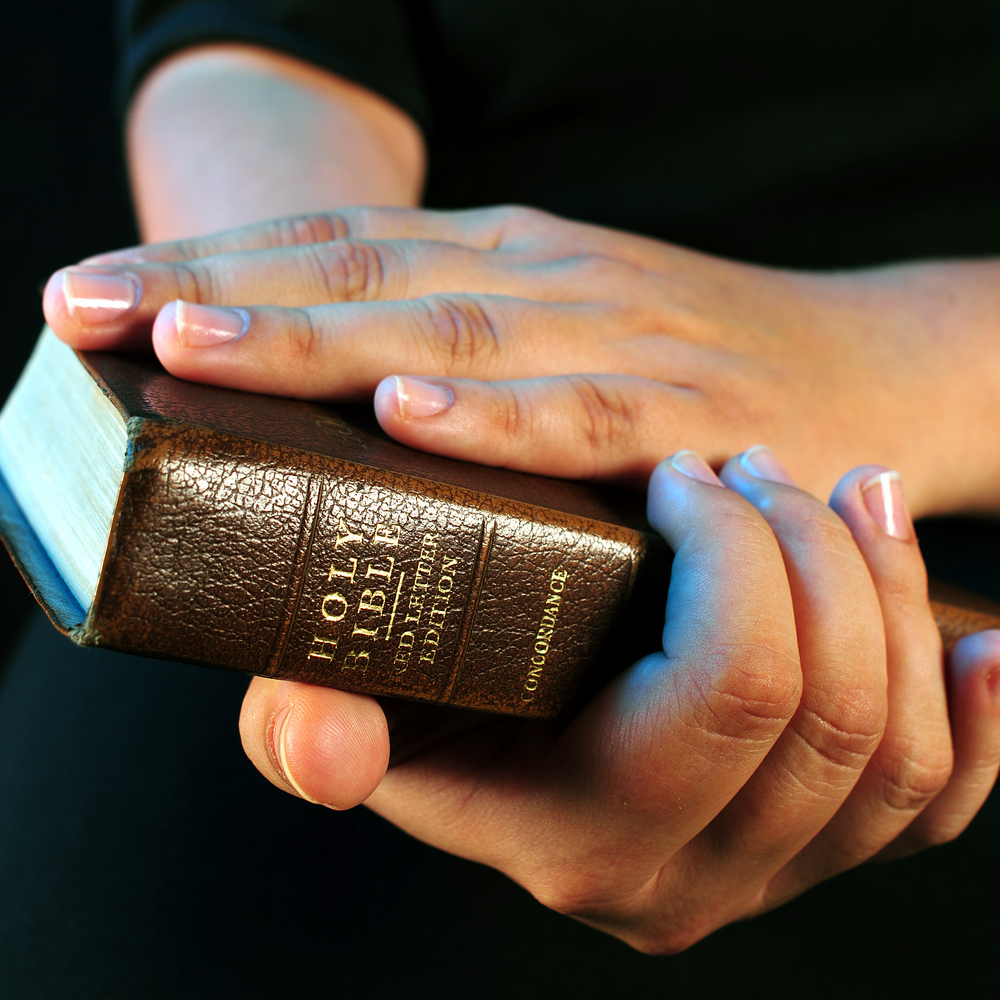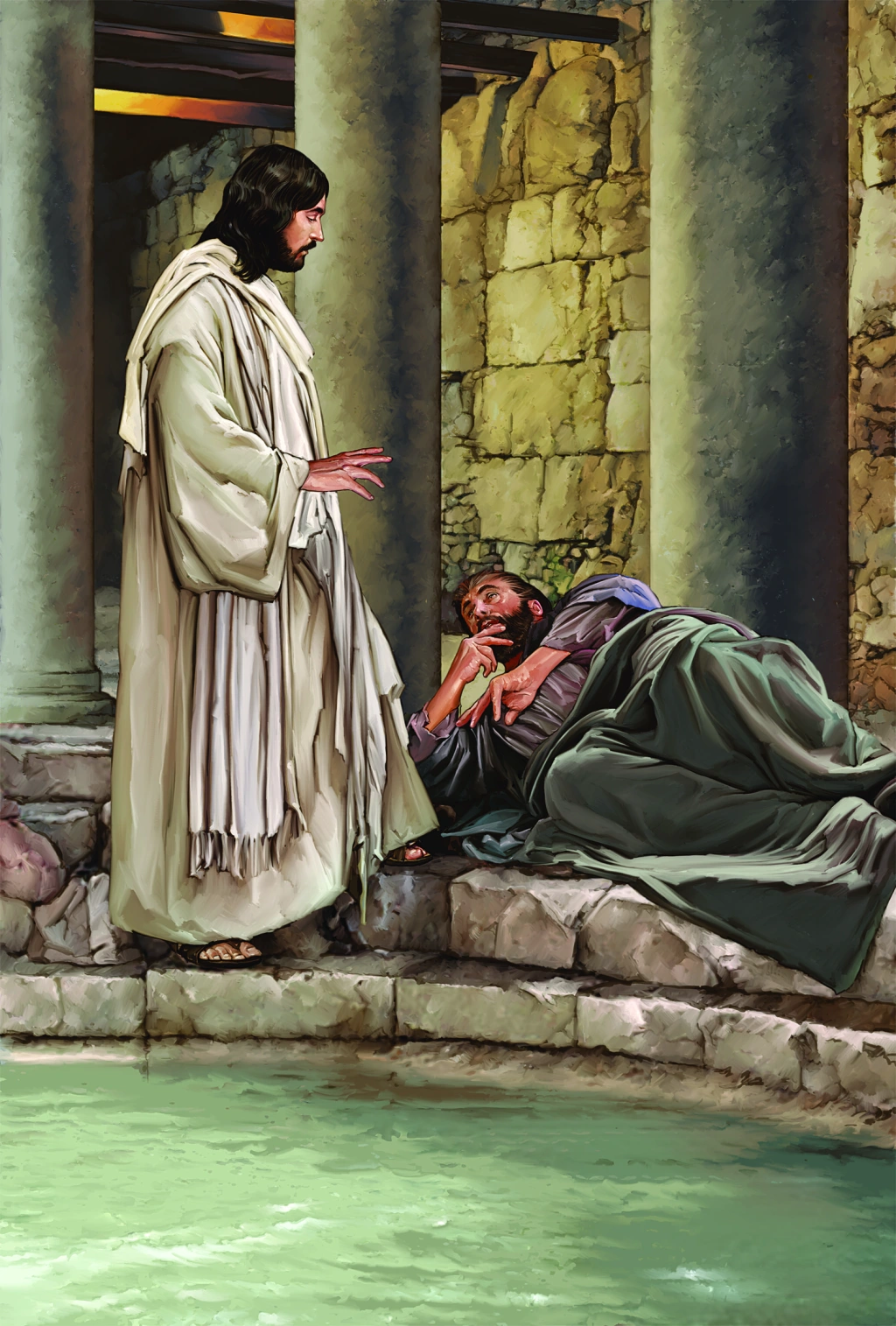 Lesson 2 part b
Lesson 2 part b
Fear and Anxiety
Examples in the Bible
The Bible contains many accounts in which people are shown displaying worry, fear, or anxiety. We’ll look at three of them.
Abraham. This biblical character lived an exemplary life. We see him willing accepting the call of God, leaving Haran, and setting out for Canaan. He displayed a great deal of faith and generosity to others, as well as living a life of steadfast obedience and closeness to God. However, after a period of intense activity (see Genesis 12-14), Abraham became afraid of what could happen. He must have been pondering one of those what-if thoughts about the son of promise who hadn’t come yet, when he concluded, If I’m not given a son, Eliezer – just a servant, after all, and not even a member of my family – will become my heir.
But the word of the LORD came to Abram in a vision: “Do not be afraid, Abram. I am your shield, your very great reward” (Genesis 15:1). Then God told him directly that his heir would be his biological son, “a son coming from your own body” (verse 4). In addition, God gave him a vision of the future and made a covenant specifying the land that his heirs would inhabit.
Abraham’s doubts and fears must have diminished. But his relief didn’t last long. Many other things happened before Isaac’s birth, including Abraham’s and Sarah strange attempts to supply the son of the promise – all probably a result of Abrahams’s doubt, fear, and anxiety. But eventually “Sarah became pregnant and bore a son to Abraham in his old age” (Genesis 21:2). David. This son of Jesse is possibly the bible character who felt the most fear. We can understand this when we remember that during much of his life, enemies were trying to kill him. When he was a young man, his predecessor on the throne, King Saul, pursued him relentlessly. Then during his mature years, his own son Absalom sought to overthrow and kill him. And the Philistines battled against him throughout his adult life.
It is in this context that we find jewels such as Psalm 27, a song in which David tells how the LORD freed him from fear:
The Lord is my light and my salvation Whom Shall I fear? The LORD is the stronghold of my life- of whom shall I be afraid? . . . Though an army besiege me, My heart will not fear Though war break out against me. even then will I be confident (verse 1, 3).
David’s key strategy for dealing with fear was trust in God. We see this in passing such as the following:
- He put a new song in my mouth, a hymn of praise to our God. Many will see and fear and put their trust in the LORD (Psalm 40:3).
- He (the man who fears the LORD) will have no fear of bad news; His heart is steadfast, trusting in the LORD (Psalm 112:7).
- When I am afraid, I will trust in you. In God, whose word I have praise, in God I trust; I will not be afraid. What can mortal man do to me? (Psalm 56:3, 4).
Many people have claimed the wonderful promises David’s words suggest. Committing some of his psalms to memory and repeating them at critical times has brought divine comfort to people who were afraid. It is said that Bishop Bashford, while on a trip to China, didn’t have any option but to sleep outside because there was no room for him in the inn where he arrived late one night. He was warned of the presence of bandits and their nightly activity and found it difficult to go to sleep after saying his prayers. But the words “When I am afraid, I will trust in you” kept coming to his mind. Eventually, he said to the LORD, “there is no use for both of us to be watchful,” and soon after he fell asleep and had a good night’s rest.
Early Christians. The first generation of converts to Christianity shared their possessions with each other. Their sharing wasn’t limited to food, tools, utensils, objects, and money; it also included real estate. According to Acts 4, those who owned land or houses put them up for sale and brought the proceeds to the apostles. They, in turn, distributed the wealth to those in need. This system worked well, for we are told that there were no needy persons among them (Acts 4:32).
Scripture mentions the names of some donors, the first as an example of true generosity, and the others to show that God doesn’t accept covetousness and deceit. Joseph, the Levite from Cyprus, sold a field and put proceeds at the apostles’ feet, Ananias and Sapphira, a married couple, pledged that they also would bring the proceeds from the sale of some land they owned to the apostles. However, they secretly agreed to retain some of the money for themselves. When asked about their donations, they lied, saying they had donated all the proceeds. And soon as the words came out of their mouths, they died (see Acts 5).
It should be noted here that this communal system wasn’t based on coercion. According to Peter, Ananias and Sapphira could have kept the land or any part of the money from the sale. But they had promised to donate all the proceeds to the general fund. And when they claimed to be doing so, they were lying both to men and to God.
The Bible tells us that as a result of the deaths of Ananias and Sapphira, a ‘great fear seized the whole church and all who heard about these events” (Acts 5:11). It’s difficult to know the nature of this fear. It may have increased awe toward God, but it may also may have been that the church members were afraid of what might happen to them. Some may have schemed like Ananias and Sapphira to sell their properties, keep part of the proceeds for themselves, and bring the rest to the apostles to gain their esteem. What happened to Ananias and Sapphira no doubt caused them to change their minds.
At times fear leads to a positive outcome. A prudent amount of fear may save lives, and fear of doing evil can be beneficial. What happened to Ananias and Sapphira must have been necessary to keep the members of the early church on the right course.
Devine Reassurance
Anxiety disorders including phobias of different types – panic attacks, obsessive-compulsive disorders, posttraumatic stress disorders and generalized anxiety disorders. All of them have to do with fear, anxiety, and restlessness – sometimes for a known reason, other times for reasons unknown. Some like panic attacks, are brief but very intense, with painful physiological symptoms (palpitations, sweating, shaking, shortness of breath, feelings of choking, chest pain, nausea, dizziness, feelings of unreality, fear of losing control, fear of dying, tingling sensations, and chills or hot flashes). Others, like generalized anxiety disorders, bring on months of restlessness, fatigue, irritability, tension, and deep disturbances.
These problems aren’t rare. From 9 to 11.3 percent of people in the general population experience phobias. And generalized anxiety disorder has a one-year prevalence of 3 percent and a lifetime prevalence of 5 percent. And these are just clinical cases. In addition, there are many people suffering less frequent, less severe symptoms that don’t receive a diagnosis. Yet these people experience great pain because of their own or a loved one’s job loss, family crisis, or serious illness.
God doesn’t want men and women to suffer in this way. He wants us to hold on to His promises and trust Him in the face of fear and anxiety. At times we may need qualified psychological and medical treatment just as we need treatment of physical diseases. But in all cases, pathological or not, both the prevention and cure of these adverse symptoms requires us to practice fervent and faithful prayer, communion with the Lord, and determination to think and to do what is right.
On several occasions, Jesus had to remind His followers to cast off their cares and maintain their trust in the Father. He said, for instance, Do not let your hearts be troubled. Trust in God; trust also in me. In my Father’s house are many rooms; if it were not so, I would have told you. I am going there to prepare a place for you.’” (John 14:1,2).
Notice that Jesus spoke these words after He predicted His betrayal and attempted to explain His last days on earth and His return to heaven. The apostles, although not quite clear about the meaning of all this, must have felt disturbed. That is why Jesus told them, “Do not let your hearts be troubled.” He was inviting them to displace the fear in their hearts with trust in God the Father and Jesus Himself. Then Jesus directed their attention to the kingdom of heaven, to the presence of the Father, and to a time when there will be no more pain, no more sorrow, and no more worry about the future. What a beautiful healing session! Jesus tells the painful truth of His imminent departure but immediately takes the minds of His disciples to the ultimate experience of being with Him forever!
In conclusion, another of Jesus admonitions comes to mind: “Do not worry about tomorrow for tomorrow will worry about itself. Each day has enough trouble of its own” Matthew 6:34). How much less mental and physical discomfort people would experience if they followed this advice!
In the Philippians it is often observed that the people hold to the belief that tomorrow will be better. Typhoons and electrical storms are common during the rainy season, and they become particularly intense during September and October of each year, causing varying degrees of damage and sometimes taking human lives. But after the rain and the wind pass, people who had lost their homes are seen walking around with a smile and saying, “Tomorrow will be better.” This attitude is a part of the culture is a great safeguard against anxiety. The Filipinos applied this to small and great things. It helped them to bear the pain of today and avoid anxiety about tomorrow’s pain, which might never materialize.
If your basic needs are being met and you aren’t experiencing pain and you are safe, I invite you to thank God for your current blessings. If you’re thankful about events in the past, include them in your praise too. And since you don’t know what tomorrow will bring, let Jesus take care of your worries about what might happen then.
Next week we will be dealing with the subject of stress.




6 responses to “Biblical, Mental and Emotional Health”
Psalm 27 is my Baptism. When I came out of the ocean I said: wait on the Lord, be of good courage and He Shall Strengthen your heart, wait I say on the Lord. I found out that the all psalm was pertinent to me. Ty
LikeLike
So glad Psalms has brought you such comfort. Psalms is one of my favorite books of the Bible. I should actually preach from it more often. I should also use it more often in the blog.
Blessings,
Pastor Lester
LikeLiked by 1 person
Please do!
LikeLike
Sorry to say but your last blog on emotional and spiritual health is not informed all the way.
I am healed from a lot .I need to red it again and be more specific but I am not sure I will. I respect you a lot but this time you needed to ask someone like me before posting so you would have been able to have a more clear Idea about the problem. No offence meant. I went 6 years to a Christian Therapist, I learned a lot on the subject. Well it’s OK sorry I was maybe too honest.
LikeLike
Hi,
Each of the posts builds upon the other over the 13 weeks this series will run. Don’t give up on it yet, there are plenty of good things to come.
Blessings,
Pastor Lester
LikeLike
I will thank you.
LikeLike